Best Herbal Tea For Colds And Flu
If you or a loved one is under the weather, you may want to know which is the Best Herbal Tea For Colds And Flu. Drink this one tea to boost immunity through cold and flu seasons!
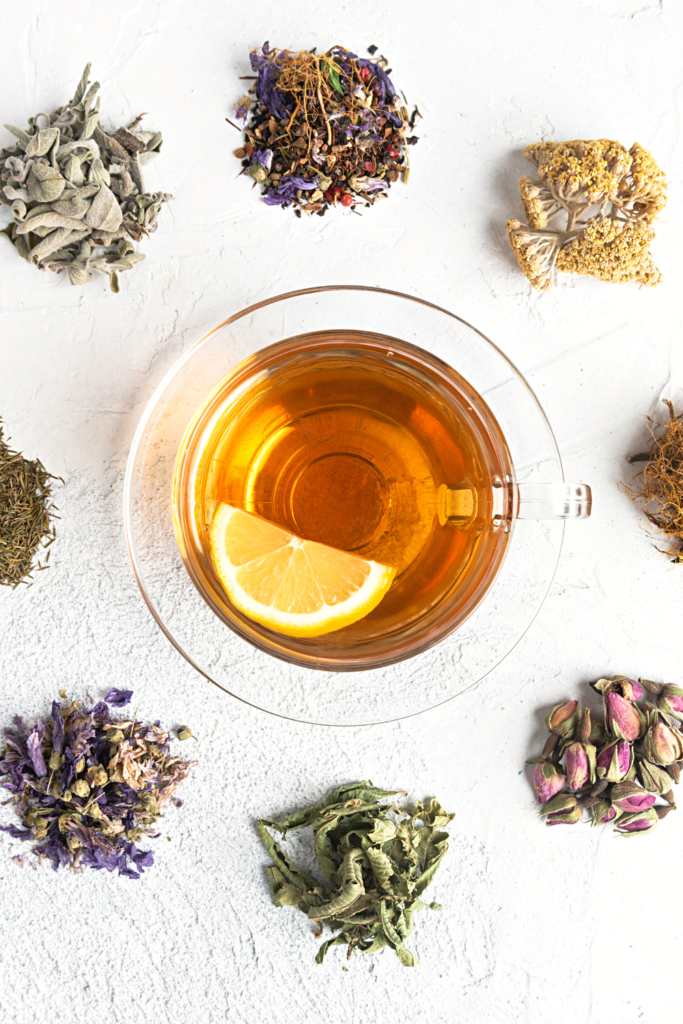
Disclaimer: Some of these tea suggestions may not be suitable for pregnancy, breastfeeding, or for young children. Consult your medical provider and do your due diligence in research when adding herbals to your diet.
This post may include affiliate links. Please refer to our disclaimer for full disclaimer.
I don’t know about you, but when flu season or cold symptoms come knocking, I want to be prepared. We have an herbal medicine kit in our home stocked with home remedies (like teas and tinctures) containing a wide array of health benefits.
Loose leaf teas are a great thing to have on hand. I buy in bulk or grow my own medicinal herbs, dry them well, and keep in a cool, dark area in our home.
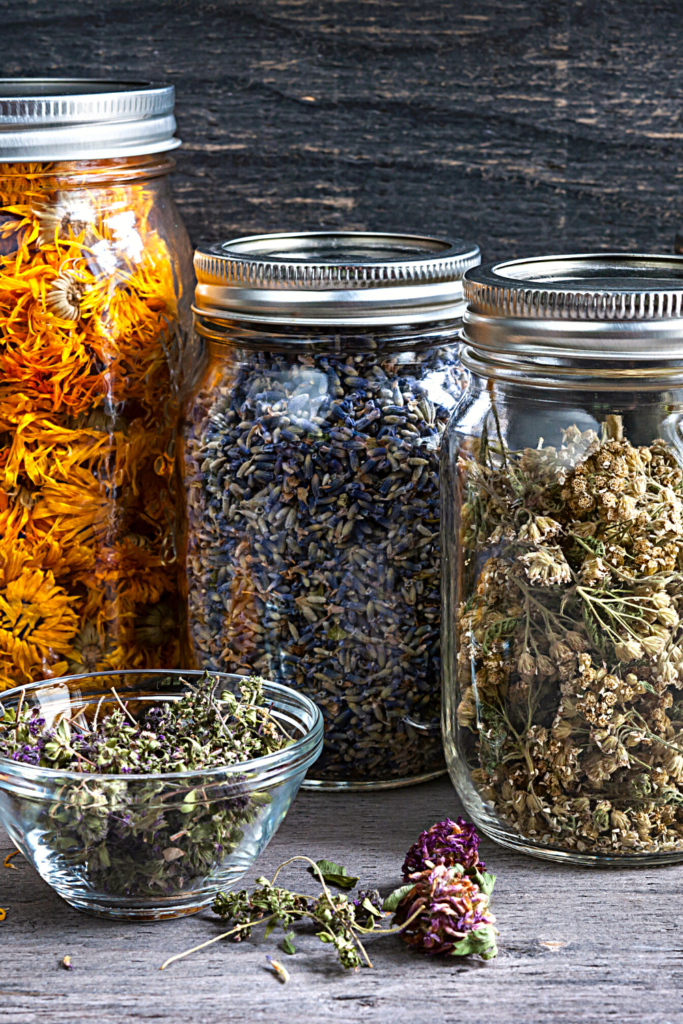
We make soothing herbal blends for all kinds of maladies, including but not limited to colds and flu. When someone asked me which tea is best for colds and flu, I knew I had to write an entire article to help others wondering the same thing!
So you may be wanting to know immediately which herbal tea is the absolute best for fighting colds and flu. I won’t keep it to myself. Elderberry is the best cold and flu-season herbal tea to use for strengthening the immune system and decreasing the length of time you may be sick.
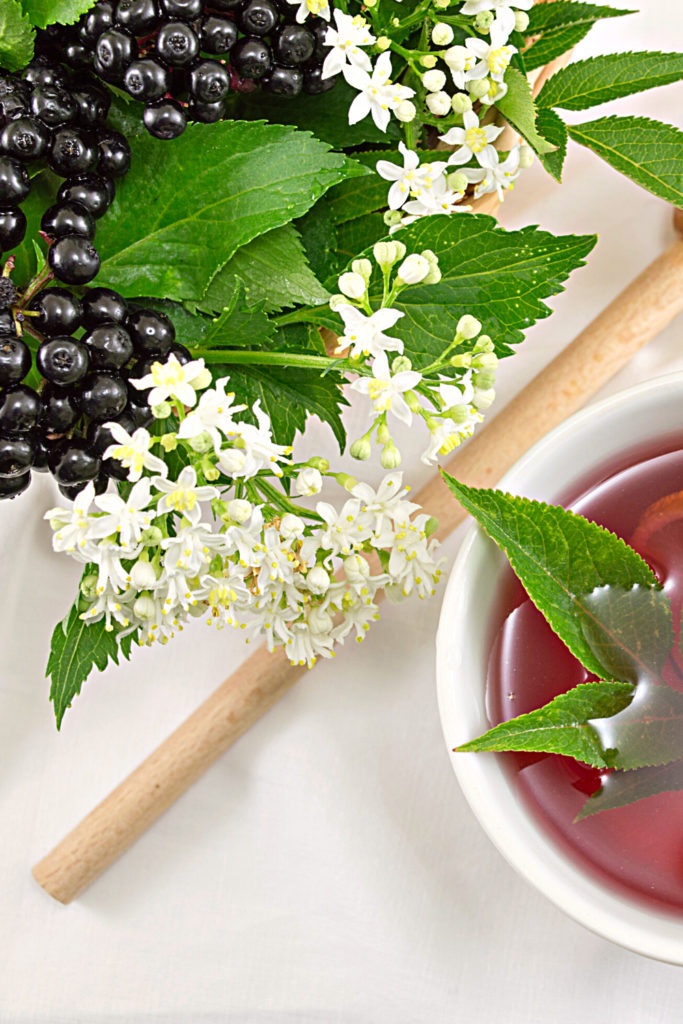
But wait, this article contains more information on how best to prepare elderberry tea and I mention 6 other teas to utilize when you’re sick! You don’t want to miss out on this valuable information.
On top of getting plenty of rest, some sunlight if possible, and eating nutritious foods, cozy up with a hot cup of tea using any of these wonderful herbal remedies!
True Tea vs. Herbal Tea
The key word of this article is “herbal tea”, so what is the difference between herbal tea and true tea (or green tea)?
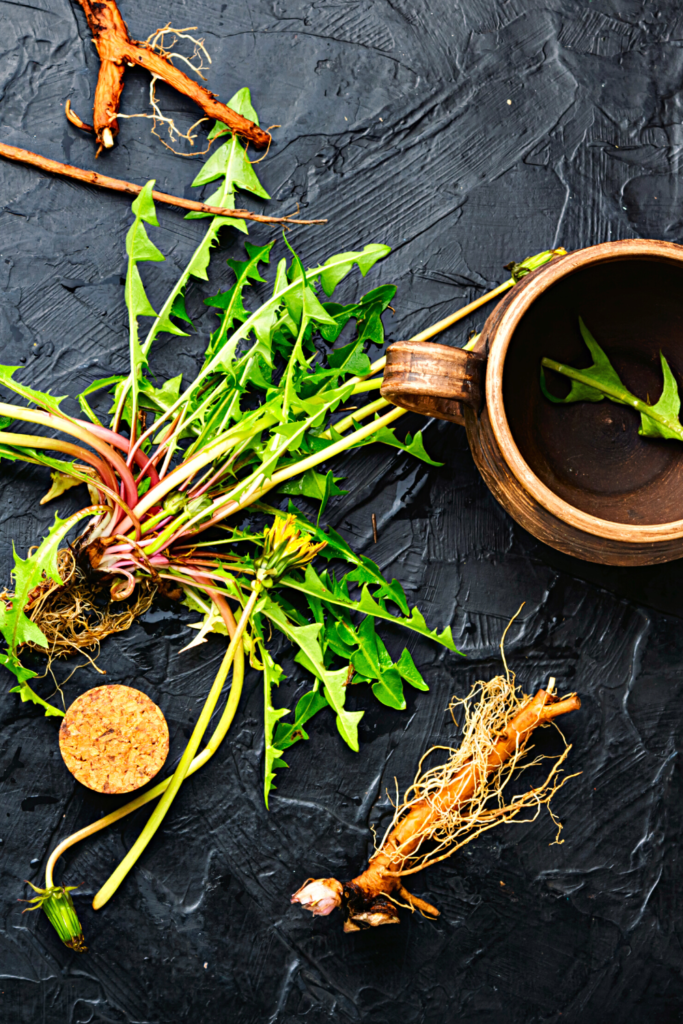
True tea is made from the leaves of the plant camellia sinensis, most commonly known as the tea plant, while herbal tea ingredients include a combination of spices, flowers, bark and leaves belonging to edible, non-tea plants, according to the Republic of Tea.
USA Today
If you’re like me, I used to think herbal tea referred to the taste of the tea. I also never used the term “true tea” but instead said green tea versus herbal tea. Now I know herbal tea can also be green (although it’s more common with true teas from leaves).
Top 7 Best Herbal Teas For Colds And Flu
#1. Elderberry Tea
The winner of being the Best Herbal Tea for Colds and Flu... Elderberry! Elderberries (Sambucus nigra) have grown very popular recently, with good reason! Dried elderberries are great in teas, tinctures, and syrups. This berry can boost the immune system greatly.
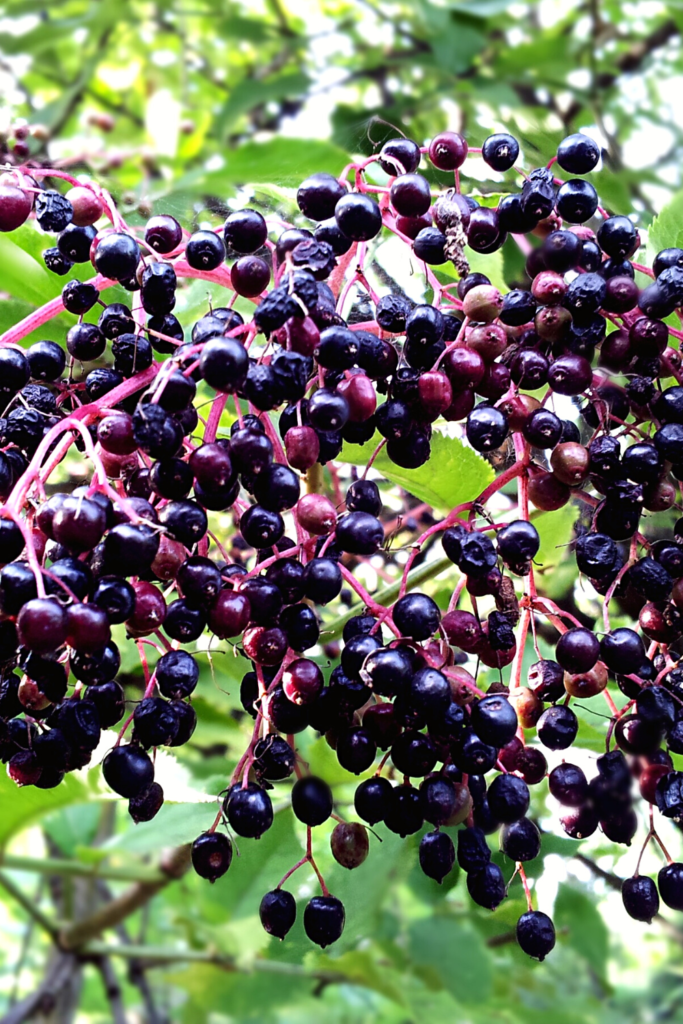
Elderberries are a great source of antioxidants, flavenols, calcium, iron, vitamin C, potassium, and phosphorus, among others. These wonderful berries can be a home remedy to help with the common cold, sore throat, or even flu symptoms.
During a randomized study for the efficacy of elderberry extract for influenza A and B, the study found flu-like symptoms were relieved 4 days sooner for patients using 15ml elderberry syrup than the patients using a placebo syrup.
Start incorporating more fresh or dried elderberry in your diet for cold and flu prevention. Try making elderberry syrup, jelly, jam, smoothies, as tea or tincture!
How To Make Elderberry Tea
Ingredients:
- 4-6 cups water
- 2 Tbsp. dried elderberries
Instructions:
- Combine the water and elderberries in a small saucepan. Bring the mixture to a boil, then lower the heat and let it gently simmer for 10-15 minutes.
- Strain the tea, then stir in raw honey or cinnamon (optional).
How To Make Elderberry Syrup
Ingredients:
- 1/2 cup dried elderberries
- 2 cups water
- 1/2 cup honey
Optional Add-Ins
- 1 teaspoon ground cinnamon or 1 cinnamon stick
- 1/4 teaspoon ground cloves
- 1 tablespoon fresh ginger
Instructions:
- Add the elderberries and water to a small saucepan, optional add-ons include cinnamon, cloves, and ginger.
- Bring the liquid to boil over medium-high heat. Once bubbling, lower the heat and let it simmer for 30 minutes, or until the liquid is reduced by half.
- Strain the cooked elderberries out, making sure to get as much juice as possible. Discard the solids or use for a lighter tea.
- Let the elderberry liquid cool, then add the honey and mix well.
- Transfer the elderberry syrup to an airtight container and store it in the fridge for up to 4-6 weeks. You can also freeze this and thaw as needed.
#2. Hibiscus Tea
Compared to elderberry, hibiscus (Hibiscus sabdariffa or roselle) is a little more cost-effective. I add a little juice to a strong cup of lukewarm hibiscus tea for my little's to consume and I drink it hot with honey.
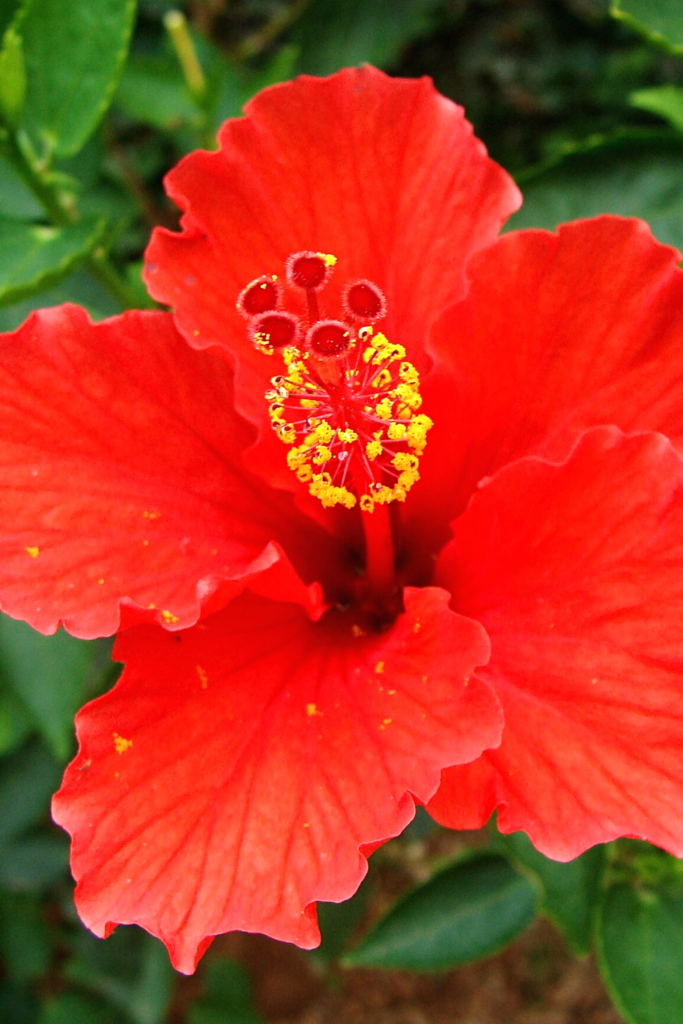
Hibiscus makes one of the best teas, rich with flavenoids, antioxidants, vitamin C, and iron. It can enhance mineral absorption, calm inflammation, inhibits LDL oxidation, and can lower cholesterol. It’s a nutritive (providing nourishment), demulcent (relieving inflammation or irritation), and energy-producing herb.
The roselle is most often used medicinally. It’s identified by having large yellow flowers with red and purple centers.
There might be other, stronger teas to fight colds and flu but my young kids actually enjoy the taste of hibiscus! The act of actually drinking it because one enjoys the taste is obviously important.
Our favorite way of consuming hibiscus is in tea form, but you can make a tincture, jams, jellies, or you can even eat fresh hibiscus flowers.
This herbal tea is not suitable for pregnant women, always consult your medical care provider.
How To Make Hibiscus Tea
Ingredients:
- 2 Tbsp dried hibiscus flowers (or 1 cup fresh hibiscus flowers)
- 4-6 cups water
- 2 Tbsp fresh lime juice (optional)
- Honey, to taste (optional)
Instructions:
- Bring the hibiscus flowers and water to a boil in a large pot. Once the water starts boiling, cover and turn off the heat.
- Let the tea steep for 15-20 mins.
- Strain the tea, then add optional lime juice and honey. Enjoy!
#3. Echinacea Tea
Echinacea (Echinacea angustifolia, Echinacea pallida, and Echinacea purpurea) is another herb used to decrease the duration of colds and flu, as well as coughs, fevers, and sore throats. It’s great for supporting the immune system and fighting infections.
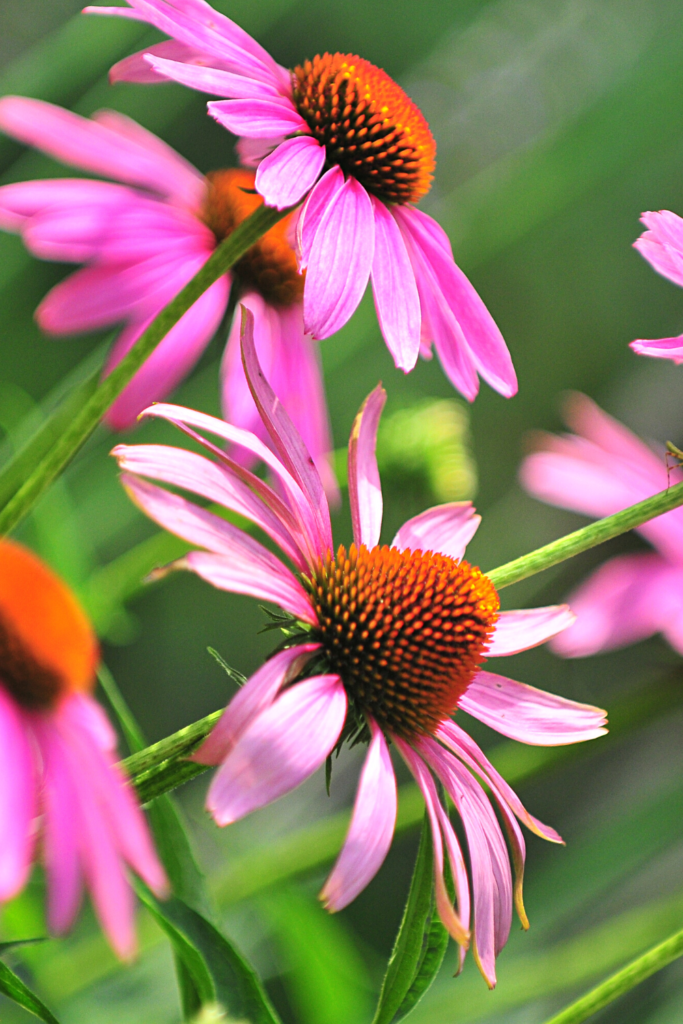
Like the other top three herbs, echinacea is also rich in antioxidants, vitamin C, flavenoids, selenium, and zinc. It’s a perennial, purple flower, medicinal herb with important immune-stimulating and anti-inflammatory properties.
The best way of getting medicinal properties out of echinacea is to tincture it in alcohol or vegetable glycerin and take a dropper full when you feel symptoms arise. You can also enjoy it as a tea like other herbs.
How To Make Echinacea Tea
Ingredients:
- 2 Tbsp dried echinacea (or 1/4 cup fresh echinacea)
- 4-6 cups water
- Honey, to taste (optional)
Instructions:
- Bring the water to a boil and pour over the fresh or dried echinacea.
- Cover and let steep for 15-20 minutes.
- Stir in a tablespoon of honey if you’d like and enjoy!
This herbal tea is not suitable for daily use. Only use when symptoms arise and discontinue once symptoms dissipate.
#4. Ginger Tea
It almost seems like ginger is a cure-all herb, maybe because it is. Ginger is a flowering plant with medicinal roots, closely related to turmeric.
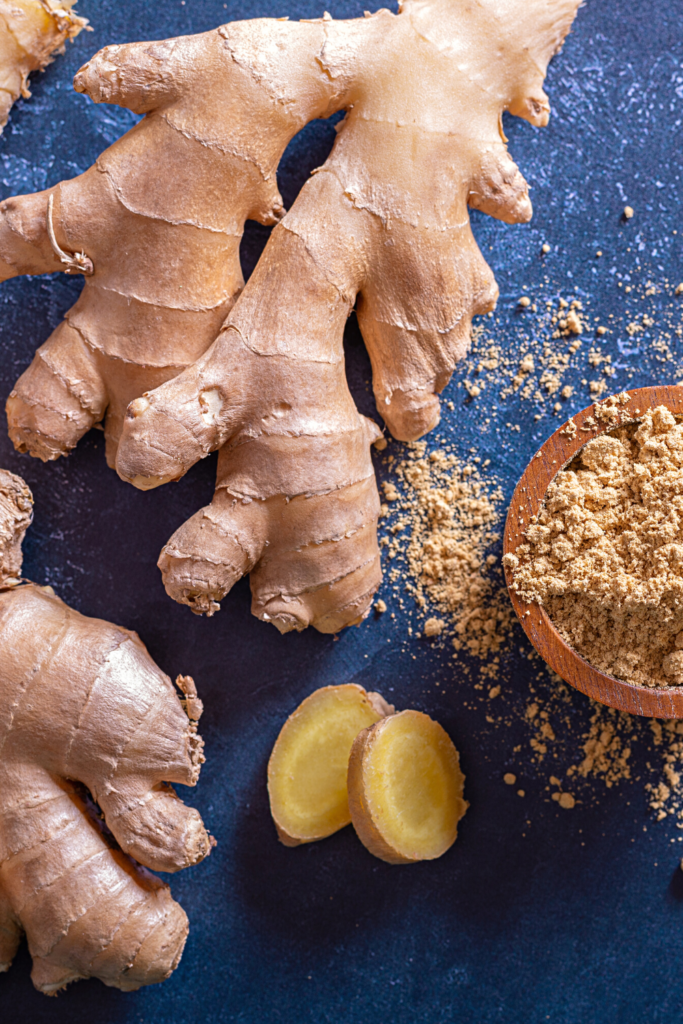
Ginger is a very common ingredient in recipes and can be used to make a zingy tea! Ginger has a main bioactive compound called gingerol, which is responsible for most of its medicinal properties. Gingerol is an anti-inflammatory and powerful antioxidant, helping to reduce the amount of free radicals in the body.
When used for sickness, it can calm upset stomachs, reduce nausea, and soothe the gastrointestinal system. It’s also antibacterial and can lower the risk of many viruses and infections.
How To Make Ginger Tea
Ingredients:
- 1 thumb fresh or dried ginger root
- 4-6 cups water
- 1 Tbsp fresh lime or lemon juice
- Honey, to taste
Instructions:
- Optional to peel the ginger before slicing. Slice the ginger into small pieces.
- Add the water and ginger to a pot or kettle and boil for at least 10 minutes.
- Turn off the burner and allow to steep for an additional 10 minutes.
- Stir in the lemon or lime juice and optional honey, to taste. Enjoy!
#5. Licorice Root Tea
No, not the candy. I’ll be honest, this one surprised me a midst my research for the best herbal tea for colds and flu. Licorice root (Glycyrrhiza glabra) isn’t the first herb we’d normally go for, but it has great medicinal properties!
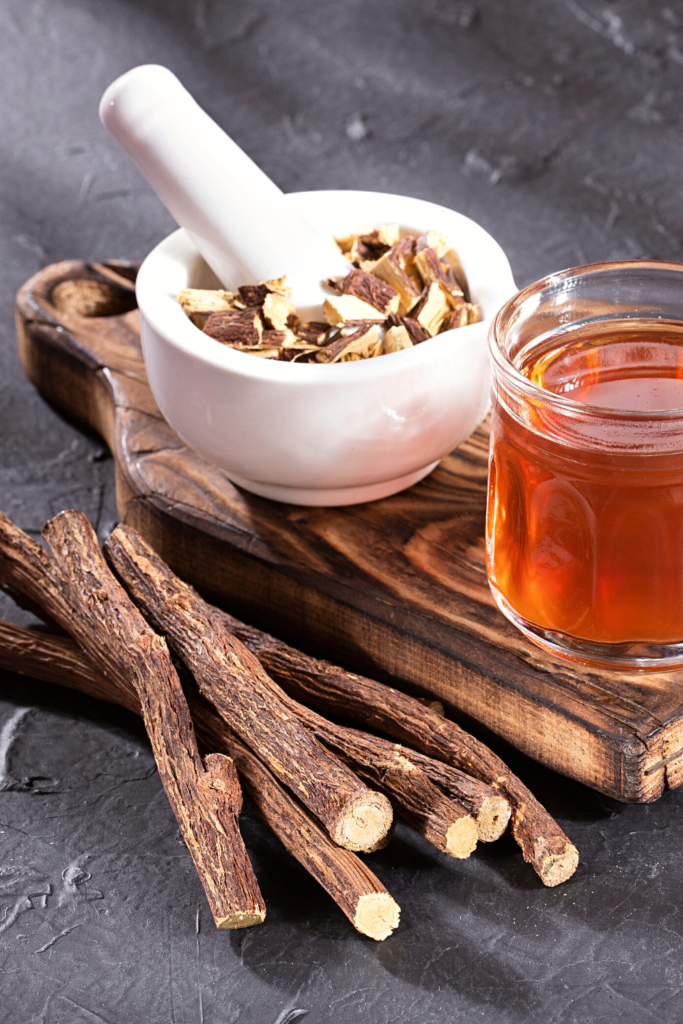
Licorice root can calm digestive issues, fight infections, support your liver and kidneys, reduce the symptoms of colds, coughs, and flus, and soothe a sore throat! Licorice root is a great herb for the respiratory systems.
Surprisingly, it also tastes similar to the licorice candy with notes of anise and peppermint. Because of its taste profile, licorice tea combines well with ginger or cinnamon, so we’re going to try these in our licorice tea shown below. I know licorice is an acquired taste, so let me know in the comments how this goes for you!
How To Make Licorice Tea
Ingredients:
- 4 Tbsp sliced, dried licorice root
- 1 cinnamon stick
- 1 thumb ginger
- 4-6 cups water
Instructions:
- Add all the stated ingredients to a pot or kettle and boil for at least 10 minutes.
- Turn off the burner and allow to steep for an additional 10 minutes, then strain.
- Option to stir in honey, although this tea already tastes pretty sweet. Enjoy!
#6. Slippery Elm Tea
Slipper elm bark (ulmus rubra or ulmus fulva) is from a tree and has been used medicinally in North America for quite some time. It’s mainly been used as herbal remedies in salves to heal wounds, boils, ulcers, burns, and more skin issues.
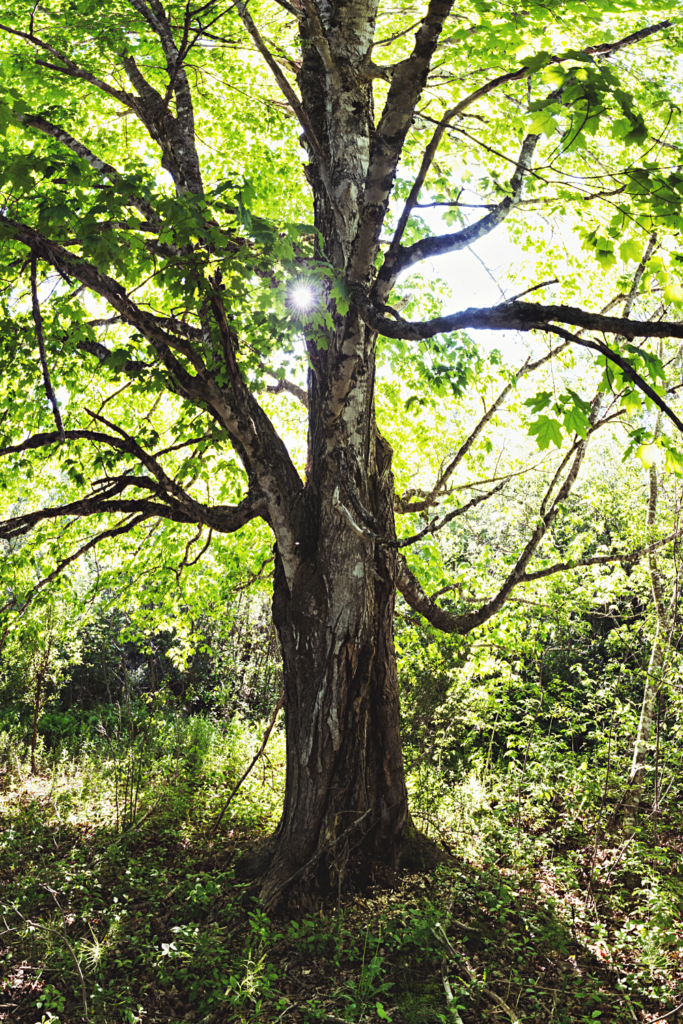
Slippery elm can be sipped on as tea to relieve upset stomach, irritated throat, and stuffy nose. The taste of slipper elm tea has a mild flavor with hints of maple. It does have some thick texture due to mucilage in the bark. You can either use powder or dried elm bark to consume this herb orally.
How To Make Slippery Elm Tea
Ingredients:
- 2 Tbsp dried slippery elm bark (or 1-2 tsp dried slippery elm powder)
- 4-6 cups water
- Honey or pure maple syrup, to taste
Instructions:
- Add the slippery elm and water to a pot or kettle and boil for at least 10 minutes.
- Turn off the burner and allow to steep for an additional 10 minutes, then strain.
- Option to stir in honey and enjoy!
#7. Lemon Balm Tea
Lemon balm (Melissa officinalis) is a lemon-scented herb from the mint family. You can use the leaves for medicinal tea or to flavor food!
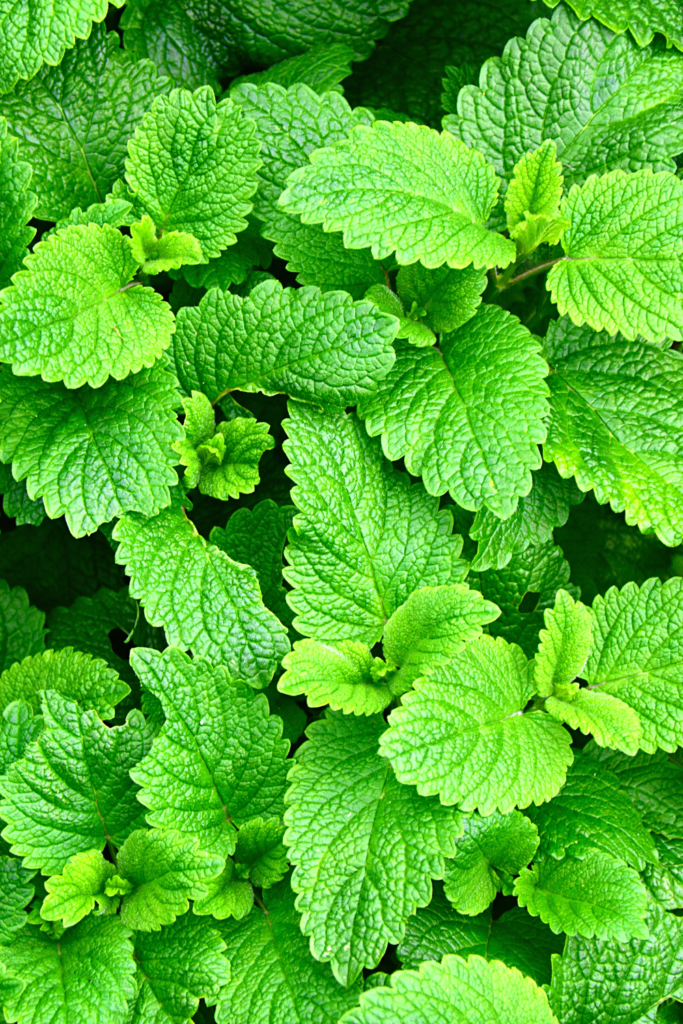
Lemon balm is probably one of my favorite tea to balance all systems of the body. For example, if you have too much mucus, it dries the body a bit. If you are stuffed up, it dampens the systems. It just does a great job to support overall immunity and health.
Lemon balm is a great anxiety-reducer and mood-enhancer if you’re feeling those sick-time blues. It also combats free radicals, is an anti-viral herb, and can help you sleep better (allowing your body to recover).
How To Make Lemon Balm Tea
Ingredients:
- 2 Tbsp dried lemon balm
- 1 Tbsp lemon or lime juice
- 4-6 cups water
- Honey or pure maple syrup, to taste
Instructions:
- Add the lemon balm and water to a pot or kettle and boil for at least 10 minutes.
- Turn off the burner and allow to steep for an additional 10 minutes, then add the additional ingredients.
- Option to stir in honey and enjoy!
Other Notable Teas To Try
These teas may not have made our top 7 list, but they’re still worthy flu-fighting teas! Try them all and pick what works for you when sickness comes calling.
- Peppermint tea
- Lemon tea
- Chamomile tea
- Star anise
- Lemon verbana (similar to lemon balm)
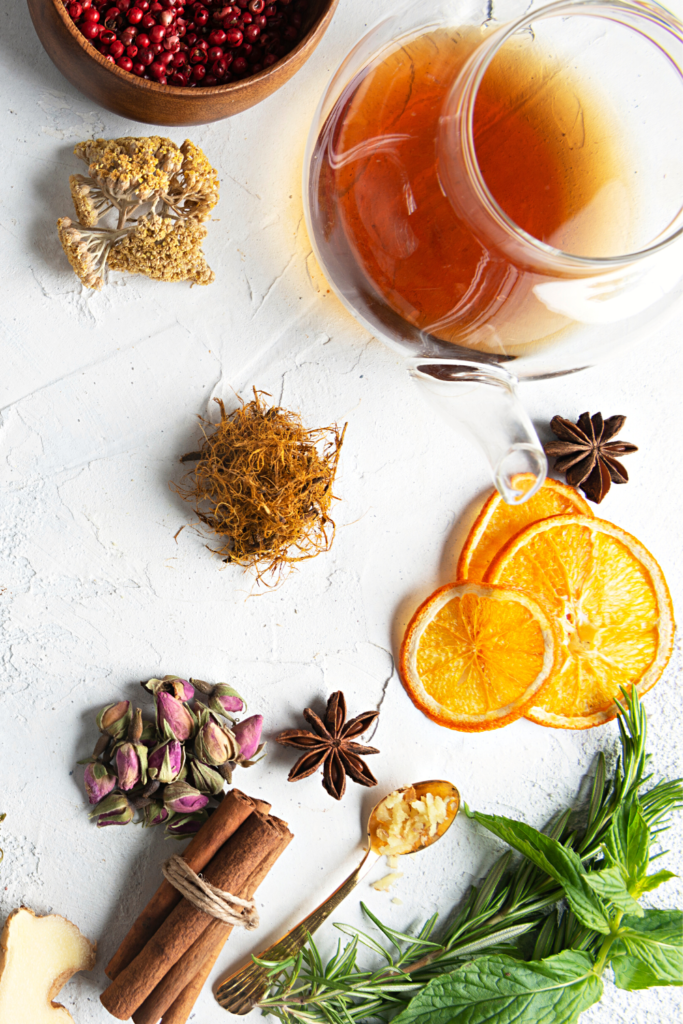
Sources
https://pubmed.ncbi.nlm.nih.gov/15080016/
https://www.healthline.com/nutrition/elderberry#health-benefits
https://www.ncbi.nlm.nih.gov/pmc/articles/PMC4441164/
https://www.healthline.com/nutrition/11-proven-benefits-of-ginger
https://www.ncbi.nlm.nih.gov/pmc/articles/PMC3609356/
https://www.ncbi.nlm.nih.gov/pmc/articles/PMC3418209/
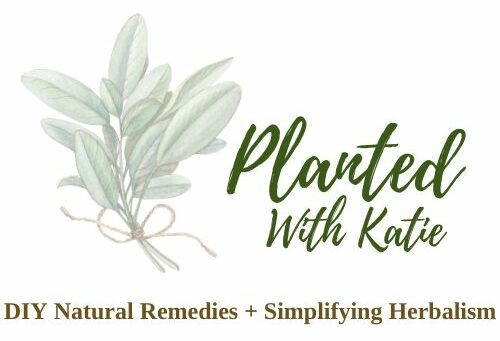
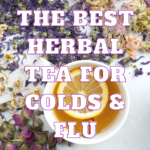


[…] be good for you too. I mainly speeak about the health benefits of various teas. Various teas can help you recover from colds and flus, calm an upset stomach, soothe a fever, and so much […]
[…] why not treat yourself to a comforting cup of tea today and celebrate the art of sipping this age-old and refreshing […]